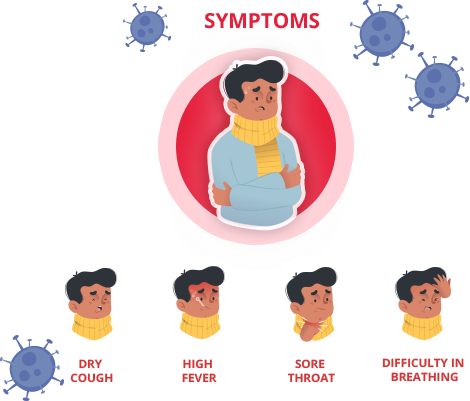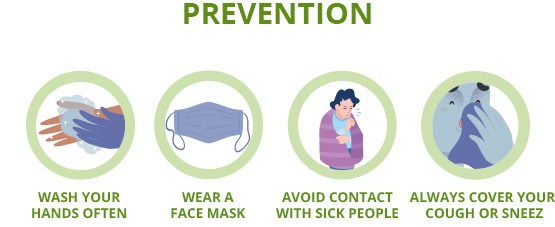CORONA TRACKER
About Covid-19
Coronavirus disease (COVID-19) is an infectious disease caused by a newly discovered coronavirus.
Coronaviruses are a group of related viruses that cause diseases in mammals and birds. In humans, coronaviruses cause respiratory tract infections that can range from mild to lethal.
Most people who fall sick with COVID-19 will experience mild to moderate symptoms and recover without special treatment.

Covid cases in World and India.
World Wide Total Cases :
World Wide Today Cases :
India Total Cases :
India Today Cases :
Covid-19 Symptoms
The virus can cause a range of symptoms, ranging from mild illness to pneumonia. Symptoms of the disease are fever, cough, sore throat and headaches. In severe cases difficulty in breathing and deaths can occur.
Signs and symptoms include respiratory symptoms and include fever, cough and shortness of breath. In more severe cases, infection can cause pneumonia, severe acute respiratory syndrome and sometimes death.
Standard recommendations to prevent the spread of COVID-19 include frequent cleaning of hands using alcohol-based hand rub or soap and water; covering the nose and mouth with a flexed elbow or disposable tissue when coughing and sneezing.

Covid-19 Precautions

Keep alcohol-based hand sanitizers out of children’s reach. Teach them how to apply the sanitizer and monitor its use.
Apply a coin-sized amount on your hands. There is no need to use a large amount of the product.
Remember that washing your hands with soap and water is also effective against COVID-19.
Under no circumstance, drink or let children swallow an alcohol-based hand sanitizer. It can be poisonous.
How it Spreads
People can catch COVID-19 from others who have the virus.
he disease can spread from person to person through small droplets from the nose or mouth which are spread when a person with COVID-19 coughs or exhales.
These droplets land on objects and surfaces around the person.
There is no evidence that drinking lots of water flushes out the new coronavirus or the stomach acid kills the virus.
